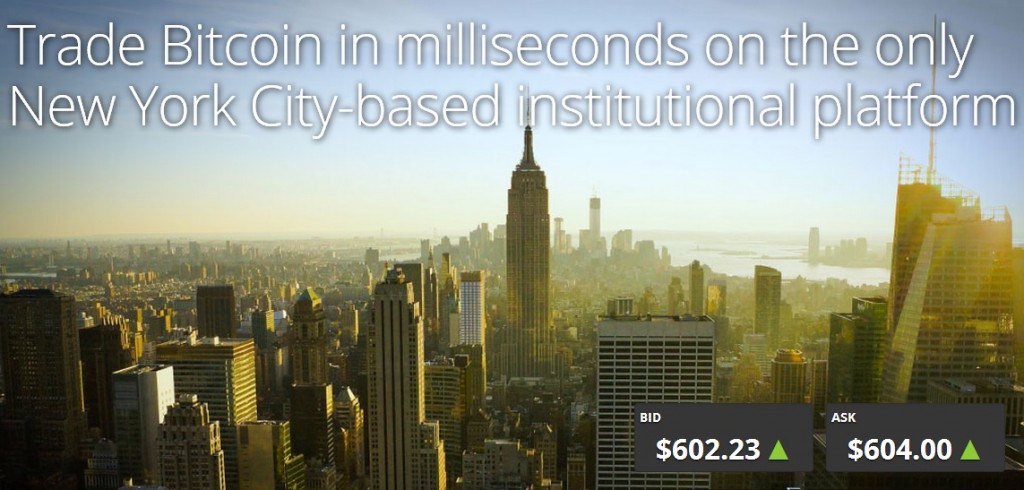So far in 2014, the biggest news in popular economics has been Thomas Piketty and his book Capital in the Twenty-First Century. It has struck a nerve with a worldwide populous that is still reeling in the wake of the 2008 financial crisis, with some estimates putting sales of the book at over 200,000 in just a few months.
This is remarkable for a 600+ page tome on economics, a subject which the general public usually regards with disdain. Harvard University Press, Capital’s publisher and a company that considers a book with 60,000 sales in a year a blockbuster, has been flooded with orders. In a world searching for answers to economic turmoil, Piketty’s insightful publication has been welcomed with open arms.
For those who have not read the book (disclaimer: I have not, besides a quick overview for the purpose of the article) or one of the web’s many summaries, here’s the quick run down of Piketty’s research and the conclusions he comes to:
Using comprehensive financial data from Europe and the United States dating back to the 18th century, Capital presents evidence for a central thesis that, in a capitalist economic system, the rate of return on capital is usually greater than the rate of economic growth. What this means is that, over the long-run, we can expect inequality to rise as the rich (who make their money largely off capital – defined as real assets such as land, natural resources, houses, office buildings, factories, machines, software, patents, and stocks and bonds that represent a financial interest in those assets) get richer, while the poor and middle class (who make their money working in the larger economy) fall behind. Piketty argues that this should be avoided because he believes that such a concentration of wealth will lead to economic instability. In conclusion, he proposes a global progressive tax system to curb these negative externalities produced by the nature of capitalism.
It is with this conclusion that Piketty runs into problems. He himself admits that the proposal is “utopian” and that, at best, reformists can hope for regional wealth taxes in areas the size of Europe or the United States, no larger. And this is dependent on the actions of politicians, many of whom win or lose elections based on the backing of wealthy donors. In an email exchange with Bloomberg Businessweek, Piketty said “this is political, not technical”. Following this, the prescription recommended by Capital seems doomed to fail.
The Inefficiencies of Finance
As I have covered before, economists don’t think very highly of Bitcoin and other cryptocurrencies. Although they are coming around to the idea, the discipline as a whole still views the nascent technology as not much more than an interesting experiment. So it should be no surprise that Piketty doesn’t consider what it could do to help solve his crisis of inequality. However, when looking at his research, there are interesting connections between what he views as a leading cause of inequality in the past 30 years and the inefficiencies that cryptocurrencies were invented to solve.
In his book, Piketty identifies the source for rising inequality in the U.S. and other English speaking countries as the advent of “supermanagers”, by which he means top executives of large corporations with very rich compensation packages. In his review of the book, Nobel winning economist Robert Solow says this is an issue because “With or without stock options, these large pay packages get converted to wealth and future income from wealth.” This, in turn, continues the trend of inequality. From Capital:
“(T)he explosion of top incomes explains most (generally at least two-thirds) of the increase in the top centile’s share of national income; the rest is explained by robust income from capital. In all the English-speaking countries, the primary reason for increased income inequality in recent decades is the rise of the supermanager in both the financial and nonfinancial sectors.”
The reason Piketty identifies a distinction between financial and non-financial sectors is thus:
“It is also interesting to note that the financial professions (including both managers of banks and other financial institutions and traders operating on the financial markets) are about twice as common in the very high income groups as in the economy overall (roughly 20 percent of the top .1 percent whereas finance accounts for less than 10 percent of GDP).”
Now, it is important to address two things. First, Piketty does not point to the finance industry as the sole driver behind rising inequality. He is careful to say that “80 percent of the top income groups are not in finance, and the increase in the proportion of high-earning Americans is explained primarily by the skyrocketing pay packages of top managers of large firms in the non-financial as well as financial sectors.” Second, while Capital is a book intended to have worldwide scope, this phenomenon of supermanagers is labeled as a mainly American phenomenon.
Nonetheless, these findings strongly support the idea that the financial industry has become bloated, furthering inequality and, in the words of billionaire investor George Soros, “acting as a parasite on the real economy.” Even if, as Piketty argues, the phenomenon of supermanagers is a largely American issue, it still has effects on the rest of the world. Globalization has made markets so interconnected that financial crises are no longer isolated to single countries. That is why the 2008 disaster, largely an American production, has created lasting worldwide issues.
Furthermore, while “80 percent of the top income groups are not in finance”, the rise of supermanagers in the United States has coincided with the trend of executives receiving most of their compensation in stock options instead of cash. This directly ties their income to Wall Street, and the financial industry that rules it, even for executives of businesses that normally would have nothing to do with the stock market. Together with Piketty’s data, all of this creates a picture of a world where the main driver of inequality, and all the ills it brings, is greed by those who control the commanding heights of the economy.
What Satoshi Said
The Times 03/Jan/2009 Chancellor on brink of second bailout for banks.
Bitcoin’s creator, Satoshi Nakamoto did not say much about what Bitcoin was meant to accomplish. As Alec Liu of Vice put it, he seemed to have an “inherent awareness of PR game theory”. This was probably wise. Digital money is a controversial enough subject without any inflammatory comments from the “CEO of Bitcoin” for the mainstream news to attack. But, as the above genesis block note implies, he probably had issues with the way the 2008 financial crisis was handled. One can only assume this is what he meant by inaugurating the blockchain with such a bold statement.
It is not far-fetched to extend Satoshi’s distaste with the 2008 crisis to a belief that he saw Bitcoin as an improvement over the financial system that spawned it, an argument supported by his statement that “the utility of the exchanges made possible by Bitcoin will far exceed the cost of electricity used. Therefore, not having Bitcoin would be the net waste”. As Andreas Antonopoulos says: “Bitcoin allows anyone to participate in financial and banking innovation and to build new financial applications, financial instruments and transaction types. From global lotteries, to escrow systems, international payments, investments or simple retail transactions, the possibilities for incredibly novel uses are really almost endless”.
And here we come back to Piketty’s problem of treating inequality. In terms of stopping one of the main causes of rising imbalance (the continued dominance of supermanagers that are closely tied to the world of finance), the intelligent utilization of the technology behind cryptocurrencies is a far more feasible treatment than his “utopian” idea of implementing a worldwide tax on capital.
To be clear, I am not saying that if the entire world switched to using Bitcoin for every transaction it would solve issues of inequality. As others have pointed out, the Bitcoin economy is extremely unequal, with a few wallets controlling massive amounts of coins.
Instead, what Bitcoin and the open source blockchain technology can do is provide a foundation on which humanity can build a more efficient system for facilitating global finance, one which is based off of mathematics instead of the choices of a privileged few. Will it reverse all of our current inequality? No. Much of the capital that Piketty addresses in his book is entrenched physical wealth held securely by the super rich. It will take a long time to reverse this imbalance. But the intelligent utilization of Bitcoin’s technology can at least begin the process of slowing the growth.
Familiar Sentiments
Piketty’s book is a triumph of economic research and a fantastic educational tool on one of the most important social and political issues of our times. His contributions should be celebrated. However, he falls short in finding a solution to the problems revealed by his data.
Of course, this is nothing new to economics. In the late 18th century the discipline was nicknamed “the dismal science” by Victorian historian Thomas Carlyle. He was inspired to bestow the moniker in response to economist Thomas Robert Malthus’ prediction of impending mass starvation based on the mathematical principle that, while population grows exponentially, food production grows linearly. Malthus said “The power of population is indefinitely greater than the power in the earth to produce subsistence for man.”
Today it is easy to see where Malthus went wrong: he underestimated the power of human ingenuity. While the global population has indeed grown exponentially, our ability to grow food has evolved as well. Enough food is grown today to provide more than enough caloric intake for every person on the planet. The problem is, most people don’t have enough money to buy it, so almost half is thrown away. Many factors contribute to this problem including lack of education, poor infrastructure and, of course, global inequality.
It is easy to come to the same conclusion as Malthus: these problems are too big to solve. That is what I think happened to Piketty. He tried to solve inequality with existing tools (global taxes) instead of letting his imagination entertain the possibility of what new innovations (Bitcoin and the blockchain) could do to replace today’s inefficiencies (a bloated financial sector).
I find it hard to blame him though. If I was writing a 600-page book it would be easy to miss the news about an upstart digital currency and the revolutionary technology behind it.
Now that he’s done, maybe he’ll have time to catch up on the times.
Featured image uses charts from Thomas’ paper on income inequality.
The post Bitcoin in the Twenty-First Century: What Piketty can Learn From the Blockchain appeared first on Bitcoin Magazine.














